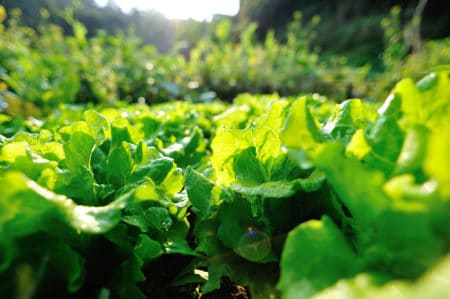What is Horticulture and Why Should You Study It?
Horticulture and landscaping combine an understanding of our world’s natural sciences with creative art and practical skills to produce fruit, vegetables, flowers, herbs and ornamental plants. Horticulture and landscaping are important to the survival of human beings, affecting climate change and sustainability challenges alongside our own health and wellbeing.
In this post, we will explore different types of horticultural studies, why horticulture and landscaping is important in today’s society, and offer suggestions on how you might build a career in this professional industry.
What is horticulture?
Horticulture has been fundamental to the survival of our planet and everything that lives upon it for hundreds of thousands of years. It is an inseparable component of our landscapes and environment, with plants being essential not only for food, materials and decoration but also the air that we breathe, biodiversity, climate change and the general health and wellbeing of the population. Continued sustainable horticultural production will always offer exciting and challenging career opportunities.
Why do we need horticulture?
Horticulture and landscaping will always provide a positive contribution to the quality of our lives. It sustains and enriches our lives by influencing the quality of the air that we breathe, provides nutritious food, encourages a diversity of wildlife habitats, and enhances the beauty, value and aesthetics of our homes, communities and landscapes.
Research shows that horticulture has a positive impact on our health and wellbeing, from the very simplest indication that spending time in a park, garden or other green space significantly reduces stress and addresses both physical and mental anxiety.
What are the different types of horticulture?
Landscape horticulture
The professional world of landscape horticulture combines the creative with the practical, beauty with necessity, and above all, the knowledge, skills and understanding that determines balance and sustainability.
It includes employment opportunities across a variety of gardens, parks and public spaces on a wide scale. Alternatively, you can go into specialist areas such as coastal regions, waterways or sites of wildlife and ecological importance. Horticulture, plants, wildlife and people all need to be appropriately managed, maintained and encouraged to inhabit our landscapes and environments to benefit all.
Ornamental horticulture
Ornamental horticulture involves the production, growth and effective use of plants, not only for their beauty and aesthetics, but also for their practical benefits. It is equally important in our landscape and environments and is often referred to as the “green industry”. A 2018 research paper by HTA (Horticultural Trades Association) on the Economic Impact of Ornamental Horticulture and Landscaping in the UK highlights this profession as supporting a workforce of over 568,000 people, and it will continue to deliver exceptional public value in terms of the landscape and environmental benefits it provides.
Vegetable horticulture (Olericulture)
Olericulture is the production, growing, harvesting and distribution of vegetable crops. It is an ever-growing and popular area of study as the population recognises the need to become sustainable in our everyday demands for healthy food.
Vegetable production is often organic and is increasingly important to our ever-evolving population. It also includes rural areas as we recognise how much we rely on large-scale mass-production, proving it is far less environmentally friendly than thought. The range of vegetable, types and varieties is almost never-ending and helps invest in our local economies and communities.
Turf management
Sports turf management is an expanding and exciting international industry that impacts the widest range of sports played on grass and other mixed-composition surfaces. Turf management includes all aspects of the production and maintenance of turfgrass for sports, leisure use or amenity use. With the range of leisure and amenity turf grass management options increasing, you can work with venues such as Wimbledon, The Oval, Twickenham, Wembley, Sunningdale, Tottenham Hotspur F.C and more.
What are the best courses to study for a career in horticulture?
Capel Manor College has been a centre for horticultural studies since 1968 and has developed an unrivalled reputation for excellence and strong industry links.
We offer a variety of full and part-time horticulture courses at all of our campuses across London. We also have a range of horticulture apprenticeships available.
By studying with us, you will be introduced to a unique array of plant species and collections, both within our campuses and across the capital, providing you with the opportunity to work within some of London’s most prestigious parks and gardens.
Discover your potential at London’s environmental college. Browse courses and apply online today.




